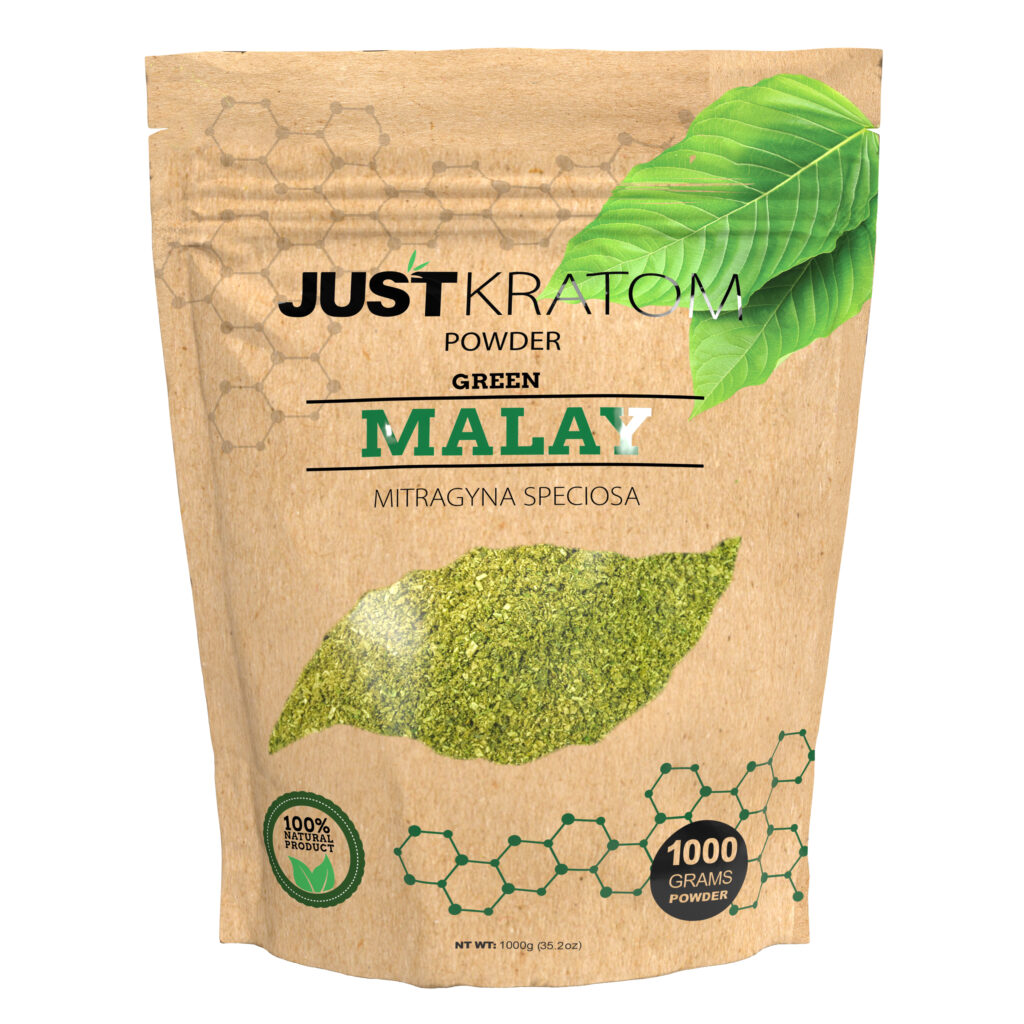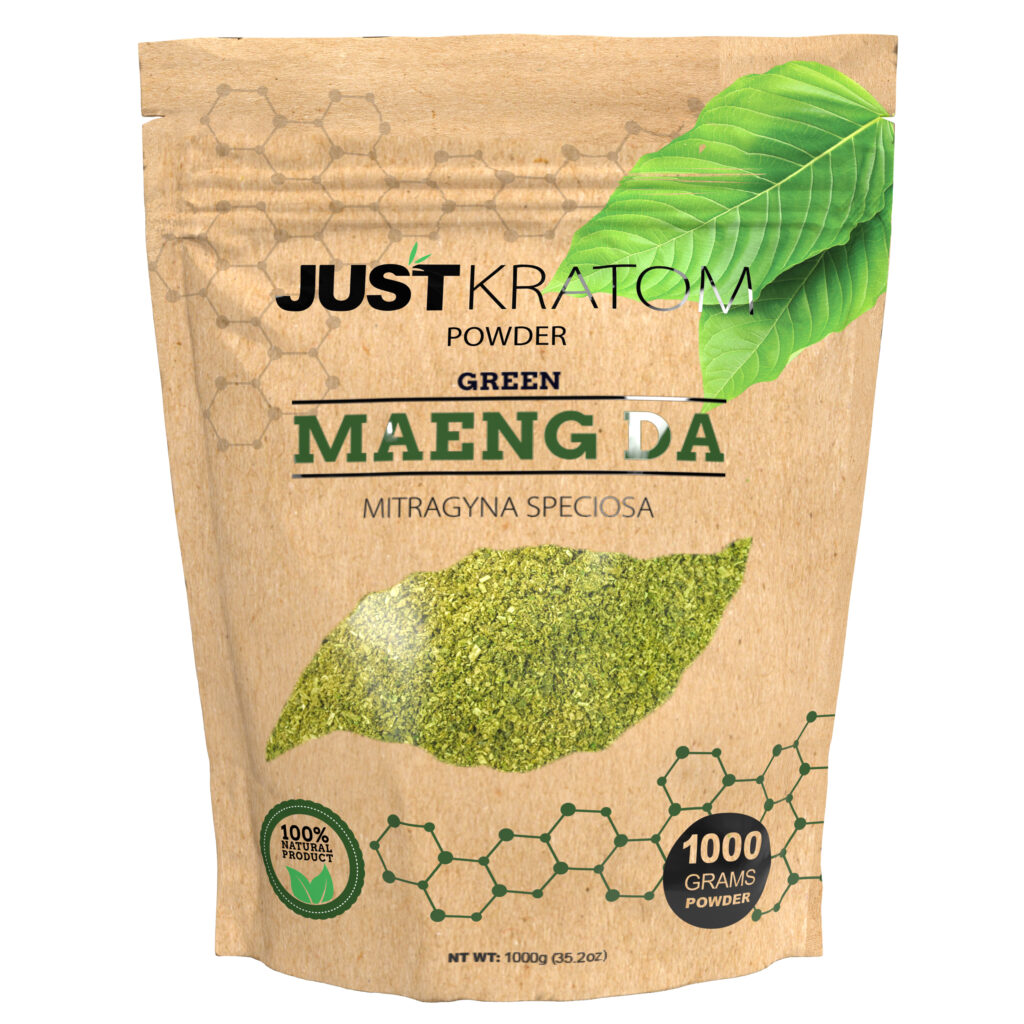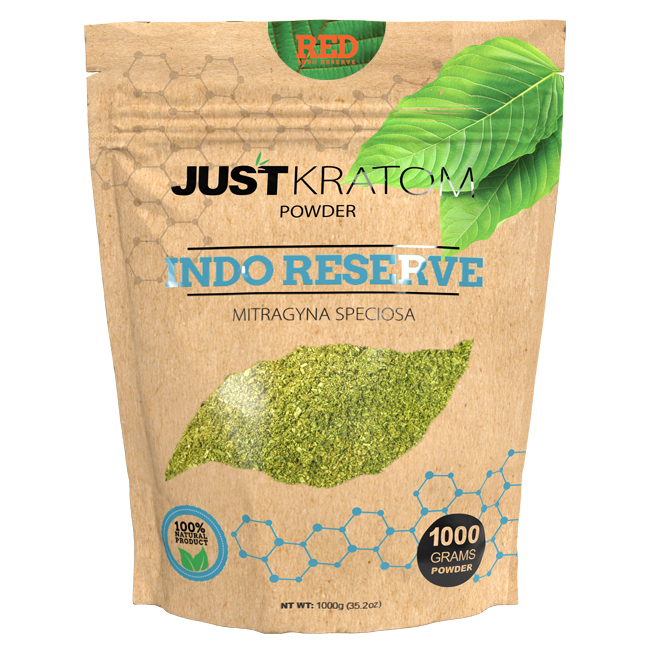Potential Anti-Anxiety Effects of Kratom
Kratom, a tropical tree native to Southeast Asia, has gained increasing attention for its potential therapeutic benefits, including its purported anti-anxiety effects.
Mechanism of Action
Preliminary evidence suggests that kratom may possess anxiolytic properties, meaning it could potentially alleviate anxiety symptoms. The mechanisms behind these effects are not yet fully understood, but research indicates that kratom’s active compounds, mitragynine and 7-hydroxymitragynine, may interact with opioid receptors in the brain. These receptors play a role in regulating mood, pain perception, and stress responses.
It is believed that kratom alkaloids bind to these receptors, modulating neurotransmitter activity, particularly serotonin and dopamine, which are crucial for emotional regulation. By influencing these neurochemicals, kratom may help reduce feelings of anxiety and promote a sense of calmness.
Receptors Affected
Kratom’s potential anti-anxiety effects are thought to stem from the interaction of its active compounds, mitragynine and 7-hydroxymitragynine, with opioid receptors in the brain. These receptors are involved in regulating mood, pain perception, and stress responses.
The alkaloids in kratom are believed to bind to these receptors, influencing neurotransmitter activity, particularly serotonin and dopamine. Serotonin is known for its role in regulating mood, while dopamine is associated with pleasure and reward. By modulating the activity of these neurotransmitters, kratom may help reduce feelings of anxiety and promote a sense of calm.
Neurotransmitter Modulation
Kratom’s potential anti-anxiety effects are attributed to the interaction of its active compounds, mitragynine and 7-hydroxymitragynine, with opioid receptors in the brain. These receptors are crucial for regulating mood, pain perception, and stress responses.
The alkaloids in kratom are believed to bind to these receptors, influencing the activity of neurotransmitters, specifically serotonin and dopamine. Serotonin is well-established for its role in regulating mood, while dopamine is associated with pleasure and reward. By modulating the activity of these neurotransmitters, kratom may help reduce feelings of anxiety and promote a sense of calm.
Research Findings
While preliminary evidence suggests that kratom might have anxiolytic properties, further research is needed to confirm its efficacy and safety for treating anxiety disorders. The existing studies are often limited by small sample sizes, lack of control groups, and variations in kratom strains and dosages.
It’s important to note that kratom can have side effects, including nausea, dizziness, constipation, and potential dependence. It may also interact with other medications. Therefore, it is crucial to consult a healthcare professional before using kratom for any health concern, especially if you are taking other medications or have pre-existing medical conditions.

Human Studies
While preliminary evidence suggests that kratom might have anxiolytic properties, further research is needed to confirm its efficacy and safety for treating anxiety disorders.
- The existing studies are often limited by small sample sizes, lack of control groups, and variations in kratom strains and dosages.
It’s important to note that kratom can have side effects, including nausea, dizziness, constipation, and potential dependence. It may also interact with other medications. Therefore, it is crucial to consult a healthcare professional before using kratom for any health concern, especially if you are taking other medications or have pre-existing medical conditions.
Animal Studies
Kratom’s potential anti-anxiety effects are primarily investigated through animal studies, offering insights into its possible mechanisms of action.
- Studies in rodents have shown that kratom administration can reduce anxiety-like behaviors in various tests, such as the elevated plus maze and open field test.
- Researchers have observed that kratom’s active compounds, mitragynine and 7-hydroxymitragynine, appear to interact with opioid receptors in the brain, which are known to play a role in regulating mood and anxiety.
Dosage and Administration
Kratom’s potential anti-anxiety effects are attributed to its active compounds, mitragynine and 7-hydroxymitragynine, interacting with opioid receptors in the brain. These receptors play a crucial role in regulating mood, pain perception, and stress responses.
The alkaloids in kratom are believed to bind to these receptors, influencing neurotransmitter activity, particularly serotonin and dopamine. Serotonin is well-known for its role in regulating mood, while dopamine is associated with pleasure and reward. By modulating the activity of these neurotransmitters, kratom may help reduce feelings of anxiety and promote a sense of calm.
Dosage and administration methods for kratom can vary depending on individual needs and desired effects. Kratom powder is often consumed by mixing it with water or juice, while capsules and extracts are also available.
It’s important to note that kratom can have side effects, including nausea, dizziness, constipation, and potential dependence. It may also interact with other medications. Therefore, consulting a healthcare professional before using kratom is crucial, especially if you are taking other medications or have pre-existing medical conditions.
Side Effects and Risks
Kratom, a tropical tree native to Southeast Asia, has gained increasing attention for its potential therapeutic benefits, including its purported anti-anxiety effects.
Preliminary evidence suggests that kratom may possess anxiolytic properties, meaning it could potentially alleviate anxiety symptoms. The mechanisms behind these effects are not yet fully understood, but research indicates that kratom’s active compounds, mitragynine and 7-hydroxymitragynine, may interact with opioid receptors in the brain. These receptors play a role in regulating mood, pain perception, and stress responses.
It is believed that kratom alkaloids bind to these receptors, modulating neurotransmitter activity, particularly serotonin and dopamine, which are crucial for emotional regulation. By influencing these neurochemicals, kratom may help reduce feelings of anxiety and promote a sense of calmness.
- Kratom’s potential anti-anxiety effects are primarily investigated through animal studies, offering insights into its possible mechanisms of action.
- Studies in rodents have shown that kratom administration can reduce anxiety-like behaviors in various tests, such as the elevated plus maze and open field test.
- Researchers have observed that kratom’s active compounds, mitragynine and 7-hydroxymitragynine, appear to interact with opioid receptors in the brain, which are known to play a role in regulating mood and anxiety.
While preliminary evidence suggests that kratom might have anxiolytic properties, further research is needed to confirm its efficacy and safety for treating anxiety disorders.
The existing studies are often limited by small sample sizes, lack of control groups, and variations in kratom strains and dosages.
It’s important to note that kratom can have side effects, including nausea, dizziness, constipation, and potential dependence. It may also interact with other medications. Therefore, it is crucial to consult a healthcare professional before using kratom for any health concern, especially if you are taking other medications or have pre-existing medical conditions.
Potential Adverse Reactions
Kratom’s potential anti-anxiety effects are primarily attributed to the interaction of its active compounds, mitragynine and 7-hydroxymitragynine, with opioid receptors in the brain. These receptors play a crucial role in regulating mood, pain perception, and stress responses.
The alkaloids in kratom are believed to bind to these receptors, influencing neurotransmitter activity, particularly serotonin and dopamine. Serotonin is well-known for its role in regulating mood, while dopamine is associated with pleasure and reward. By modulating the activity of these neurotransmitters, kratom may help reduce feelings of anxiety and promote a sense of calm.
While preliminary evidence suggests that kratom might have anxiolytic properties, further research is needed to confirm its efficacy and safety for treating anxiety disorders. The existing studies are often limited by small sample sizes, lack of control groups, and variations in kratom strains and dosages.
It’s important to note that kratom can have side effects, including nausea, dizziness, constipation, and potential dependence. It may also interact with other medications. Therefore, consulting a healthcare professional before using kratom is crucial, especially if you are taking other medications or have pre-existing medical conditions.
Interactions with Medications
Kratom’s potential anti-anxiety effects are primarily investigated through animal studies, offering insights into its possible mechanisms of action. Studies in rodents have shown that kratom administration can reduce anxiety-like behaviors in various tests, such as the elevated plus maze and open field test. Researchers have observed that kratom’s active compounds, mitragynine and 7-hydroxymitragynine, appear to interact with opioid receptors in the brain, which are known to play a role in regulating mood and anxiety.
Kratom’s potential anti-anxiety effects are attributed to its active compounds, mitragynine and 7-hydroxymitragynine, interacting with opioid receptors in the brain. These receptors play a crucial role in regulating mood, pain perception, and stress responses. The alkaloids in kratom are believed to bind to these receptors, influencing neurotransmitter activity, particularly serotonin and dopamine. Serotonin is well-known for its role in regulating mood, while dopamine is associated with pleasure and reward.
By modulating the activity of these neurotransmitters, kratom may help reduce feelings of anxiety and promote a sense of calm. While preliminary evidence suggests that kratom might have anxiolytic properties, further research is needed to confirm its efficacy and safety for treating anxiety disorders.
The existing studies are often limited by small sample sizes, lack of control groups, and variations in kratom strains and dosages. It’s important to note that kratom can have side effects, including nausea, dizziness, constipation, and potential dependence. It may also interact with other medications.
Therefore, consulting a healthcare professional before using kratom is crucial, especially if you are taking other medications or have pre-existing medical conditions.
Contraindications and Precautions

While kratom shows promise as a potential treatment for anxiety, it is essential to be aware of potential contraindications and precautions.
Certain individuals should avoid kratom use altogether. These include people with pre-existing conditions such as liver disease, addiction disorders, or those taking medications that interact with kratom.
Furthermore, pregnant or breastfeeding women are advised to avoid kratom due to a lack of research on its safety during these periods.
It is crucial to consult a healthcare professional before using kratom to assess potential risks and benefits based on individual health circumstances.
Underlying Health Conditions
While kratom shows promise as a potential treatment for anxiety, it is essential to be aware of potential contraindications and precautions.
Certain individuals should avoid kratom use altogether. These include people with pre-existing conditions such as liver disease, addiction disorders, or those taking medications that interact with kratom.
- Individuals with liver disease should avoid kratom as it can potentially exacerbate liver problems.
- People with a history of addiction or substance abuse are at increased risk of developing dependence on kratom.
- Kratom can interact with various medications, including opioids, antidepressants, and blood thinners. It is crucial to consult a healthcare professional about potential interactions.
Furthermore, pregnant or breastfeeding women are advised to avoid kratom due to a lack of research on its safety during these periods.
It is crucial to consult a healthcare professional before using kratom to assess potential risks and benefits based on individual health circumstances.
Pregnancy and Breastfeeding
While kratom shows promise as a potential treatment for anxiety, it is essential to be aware of potential contraindications and precautions. Certain individuals should avoid kratom use altogether. These include people with pre-existing conditions such as liver disease, addiction disorders, or those taking medications that interact with kratom.
Furthermore, pregnant or breastfeeding women are advised to avoid kratom due to a lack of research on its safety during these periods. It is crucial to consult a healthcare professional before using kratom to assess potential risks and benefits based on individual health circumstances.
Substance Abuse Issues
Kratom can interact with certain medications, including opioids, antidepressants, and blood thinners. It is important to consult a healthcare professional about potential interactions before using kratom.
Pregnant or breastfeeding women should avoid kratom due to a lack of research on its safety during these periods.
Individuals with liver disease should avoid kratom as it can potentially exacerbate liver problems. People with a history of addiction or substance abuse are at increased risk of developing dependence on kratom.

Legal Status and Regulations
While kratom shows promise as a potential treatment for anxiety, it is essential to be aware of potential contraindications and precautions.
- Individuals with liver disease should avoid kratom as it can potentially exacerbate liver problems.
- People with a history of addiction or substance abuse are at increased risk of developing dependence on kratom.
- Kratom can interact with various medications, including opioids, antidepressants, and blood thinners. It is crucial to consult a healthcare professional about potential interactions.
Furthermore, pregnant or breastfeeding women are advised to avoid kratom due to a lack of research on its safety during these periods.
It is crucial to consult a healthcare professional before using kratom to assess potential risks and benefits based on individual health circumstances.
Kratom’s legal status varies significantly across the globe.
- In some countries, kratom is completely banned or heavily restricted due to concerns about its potential for abuse and adverse effects.
- Other countries have legalized kratom for certain purposes, such as traditional medicine or personal use, but with regulations in place to ensure safety and quality control.
- The United States has taken a more complex approach, with the Drug Enforcement Administration (DEA) classifying kratom as a “drug of concern” and attempting to schedule it as a controlled substance. However, this effort has faced legal challenges and remains unresolved.
It is essential to research and understand the specific laws regarding kratom in your country or region before using it.
Order Kratom Powder for fast delivery
- Xela Rederm Skin Booster Treatments Near Merton, Surrey - January 19, 2026
- Xela Rederm Skin Booster Treatments Near Betchworth, Surrey - January 17, 2026
- Why The Craftsman Series Vape Is A Favorite Among Cannabis Users - January 14, 2026
